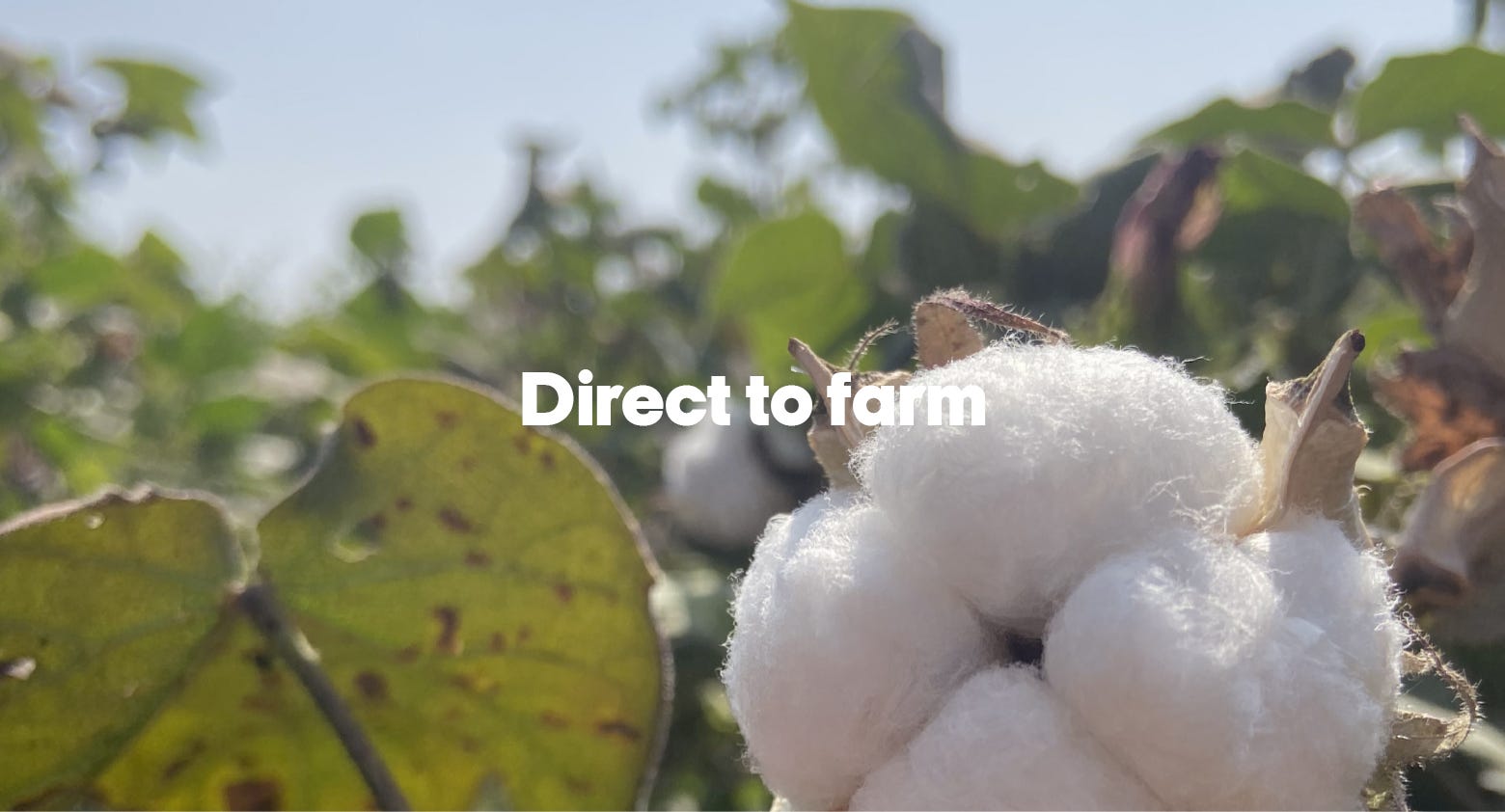
Sourcing organic cotton direct from the farm
We are on a mission to up the organic cotton we use in our products across our brand. So, we are working to secure a constant supply of it while making sure we know exactly how the cotton gets from the farmer’s hands to the finished garment.
It is all part of our “direct-to-farm” project, a hands-on initiative started by our parent company BESTSELLER that spans the whole cotton supply chain. We are involved each step of the way, from finding the farms to keeping track of the cotton as it is processed, spun, made into a fabric and cut-and-sewn by our manufacturing partners into your favorite JACK & JONES styles.
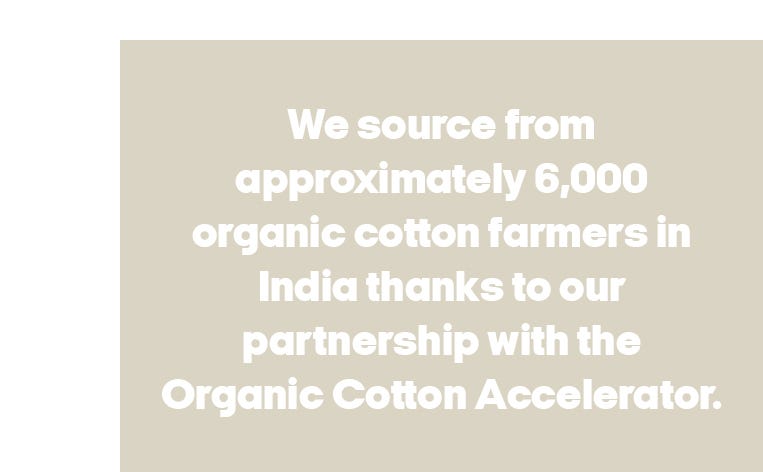
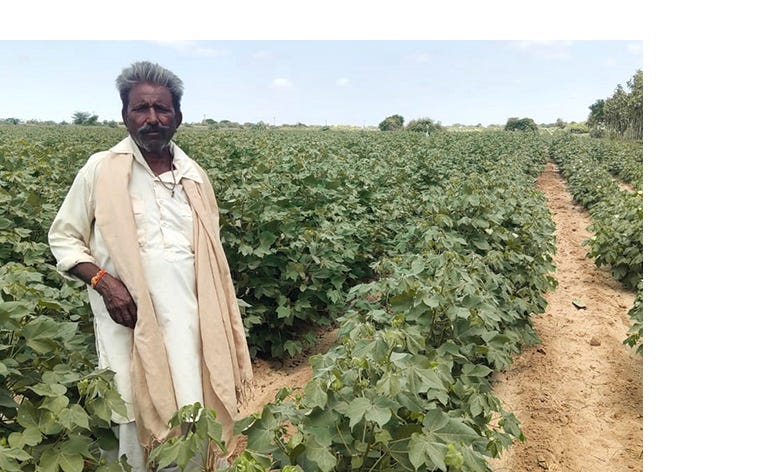
Our aim is to source 30% of our cotton certified organic by 2025, with as much as possible coming from fully traceable sources – meaning we can track it right back to the farm where it was grown. We are all for organic because it has a positive effect on soil health, helps to protect biodiversity and is free from pesticides, artificial fertilizers and genetic modification.
The only issue is that in 2022/23 1,4% of all cotton available on the market is certified organic*, and tracing and verifying cotton’s organic credentials can be challenging. We need a creative solution, which is where the "direct-to-farm" project comes in. We are investing in the future of the organic cotton sector by helping to increase the profitability and prosperity of the farmers on the ground, supporting the growth of an industry that is integral to our Better Materials promise and our A BETTER WORLD sustainability vision as a whole.
*Textile Exchange Preferred Fiber & Materials Market Report, October 2022
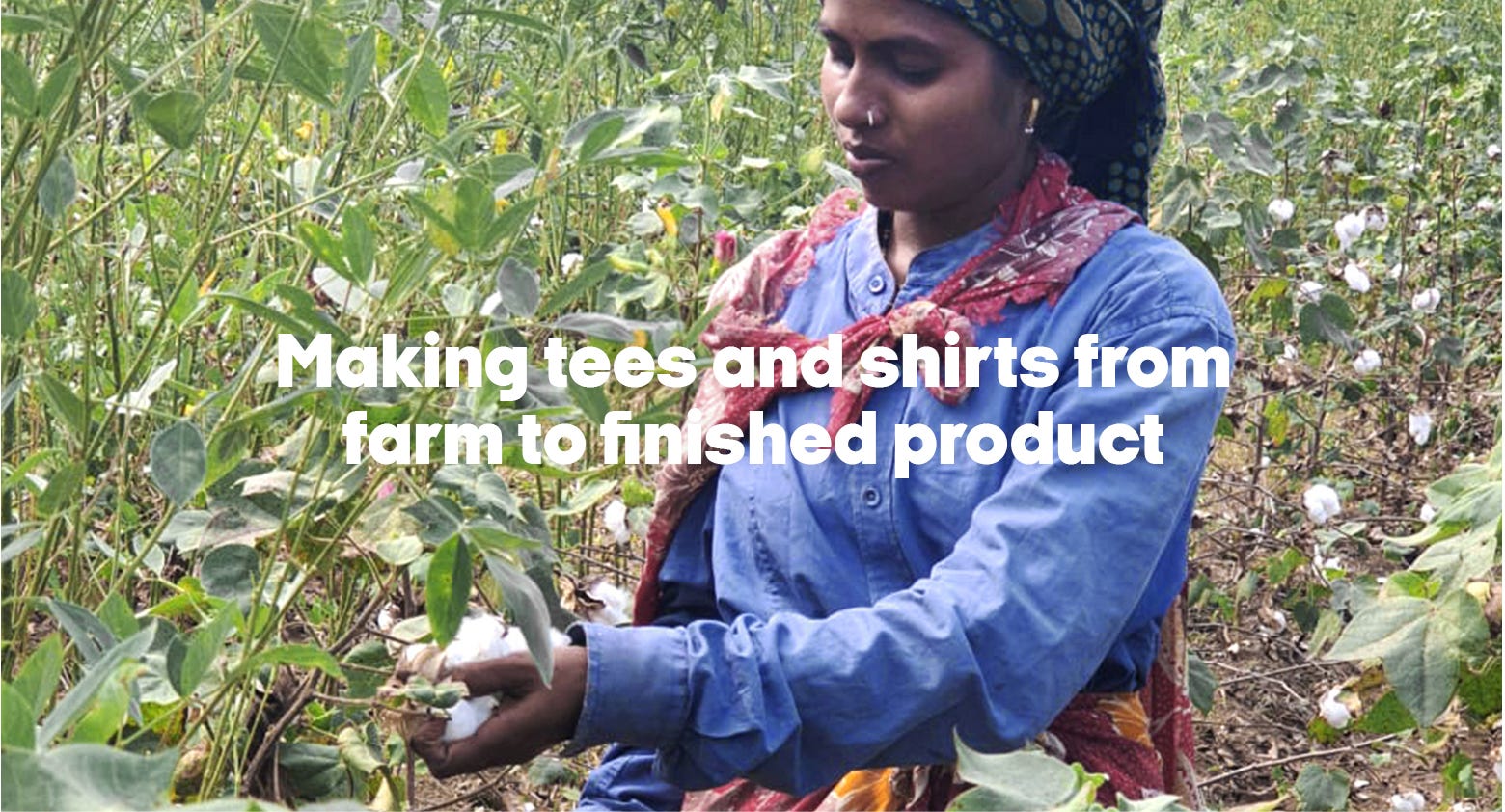
WHY WE ARE INVESTING IN A “DIRECT-TO-FARM” APPROACH
Together with BESTSELLER, we are actioning a plan for sourcing organic cotton that goes beyond certifications and standards and brings us closer to the farmers.
A “direct-to-farm” approach means we can source our cotton with more integrity and measured impact. We are partnering with programs that aim to ensure growing organic cotton is profitable and provides farmers with a sustainable income. With greater insight into where our cotton is coming from, we can ensure that farmers are getting paid a premium for the organic cotton they produce and invest in the hands-on skills training they need to thrive. Plus, we can access third-party validated data to measure the impact we are having.
The aim is to keep our supply chains as short as possible, making sure the cotton we source is processed, made into fabric and finished garments as close as can be to where it was grown. This makes it easier for us to keep track of it right through the production process.
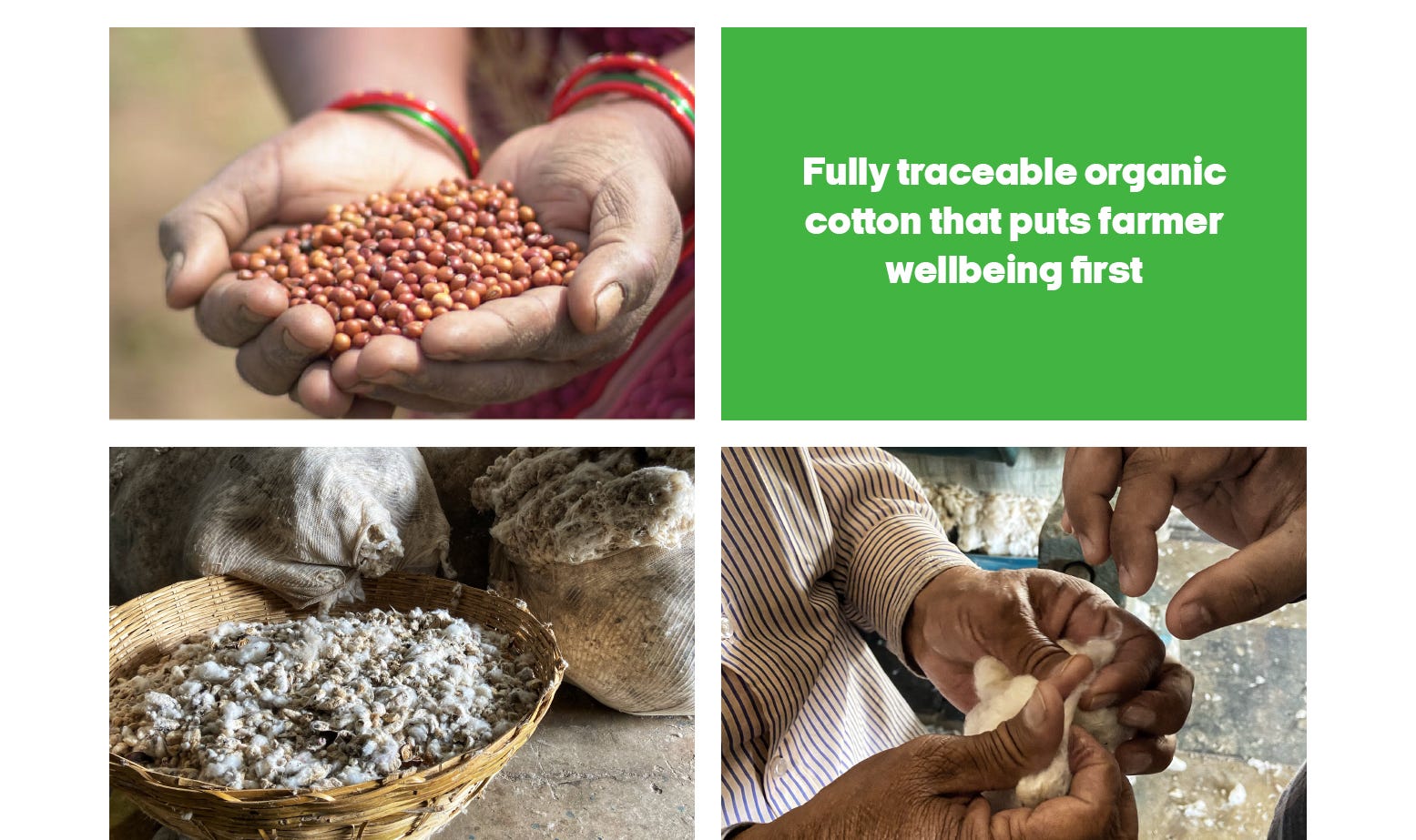
WHERE WE ARE FOCUSING OUR EFFORTS
Through BESTSELLER we are investing in "direct-to-farm" projects in four major cotton producing locations:
● India. We are sourcing from approximately 7.900 organic cotton farmers in India thanks to our partnership with the Organic Cotton Accelerator (OCA), a multi-stakeholder organization committed to bringing integrity, supply security and measurable social and environmental impact to organic cotton.
● Pakistan. We are joining our jeans manufacturer Artistic Milliners’ new Milliner Cotton initiative to source in-conversion and organic cotton grown in Kohlu district of Balochistan, Pakistan. Meaning, at the moment we can source in-conversion cotton through this initiative - in future this will enable us to source organic cotton. This project helps to increase the availability of organic cotton and provides
trainings to farmers. Additionally, it is part of a pilot project to use blockchain technology to ensure traceability and boost transparency in the supply chain.
● Tanzania. We are purchasing from organic cotton farms through the Aid by Trade Foundation’s Cotton made in Africa (CmiA) Organic standard, which focuses on improving the living conditions of African smallholder farmers in sub-Saharan Africa and promoting the cultivation of sustainable cotton.
● Turkey. We are teaming up with our denim manufacturers Bossa and Calik to bring the "direct-to-farm" project to Turkey, securing a consistent supply of organic cotton that will be processed, spun and woven by them, before being integrated into our jeans.
In 2022, we have booked 1.500MT of cotton lint for different NOOS styles. We estimate to increase to more than 6.600 MT of cotton lint in 2023, which equals 18.5 million cotton tees. For 2023, we expect to increase our direct-to-farm cotton usage significantly. Most of it will be used for our NOOS program which covers around half of our total turnover, and which focuses on styles that can be used season after season. For the coming year direct-to-farm cotton represents more than 25% of our expected total amount of cotton. With that we are on the best way to our target to source 30% of our cotton from certified organic and in-conversion cotton by 2025.
Together with our partners, we are working to improve the organic cotton supply, building a model that is both scalable and transparent. It is as much about working towards full traceability, so we can make sure our global brotherhood knows exactly what goes into the styles on their shelves, as it is about future-proofing the industry, ensuring that farmers practicing more sustainable agricultural practices get the support they need to thrive.
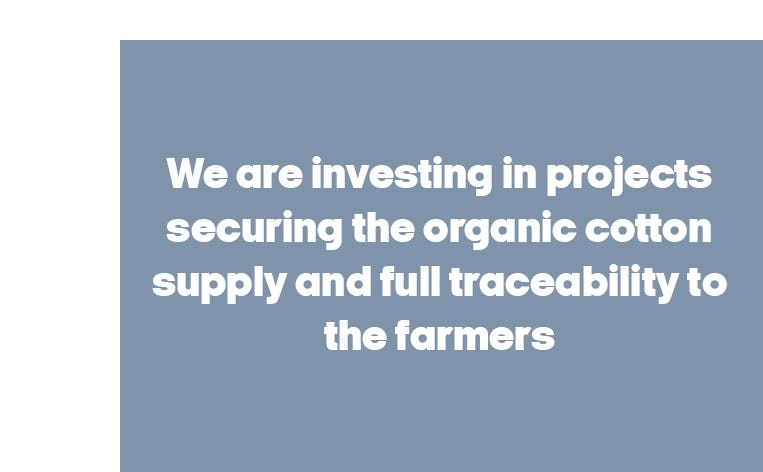

Together with our partners, we are working to improve the organic cotton supply, building a model that is both scalable and transparent. It is as much about working towards full traceability, so we can make sure our global brotherhood knows exactly what goes into the styles on their shelves, as it is about future-proofing the industry, ensuring that farmers practicing more sustainable agricultural practices get the support they need to thrive.